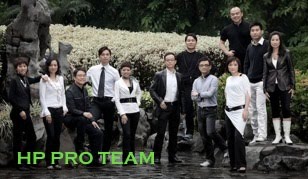In the interest of being able to back up my eating choices with actual facts (I am not one of the lucky few in possession of a photographic memory, or even an I-took-good-notes memory), I decided to put together a little background on where most of our meat comes from. It’s one thing to be able to regale folks with my true stories of happy farm animals raised by loving people on local farms, but it’s another to be able to speak (or refer to my article) to the other and much larger side of meat production here in the U.S.
I firmly believe that what we eat makes a difference on all levels, from how we look and feel to how we think and reproduce. It also makes a difference on how we relate to each other as a society, when food is as relevant and important to our survival as water. When we get our food not from people, but from corporations, I believe a critical thread is cut in our societal fabric.
Every state in the U.S. save for 12 have “Extreme” density levels of factory farms. Extreme is the highest level designated by Food and Water Watch for their Factory Farm Map program. Massachusetts is the only state (with the exception of Alaska and Hawaii) with no higher level than”Moderate.” Only one single state in the contiguous U.S., West Virginia, has no factory farms. As for California, 15 of the state’s 58 counties (over 25 percent) partake in extreme density animal farms, mostly in the central valley, but surprisingly in Sonoma county as well.
This is a problem for several reasons:
Corporate, factory-farmed meat edges out the old-fashioned family farm by undercutting market meat prices so far the family farms cannot survive.
- Factory farms make their money by numbers, raising the number of animals crowded into one space; raising the speed at which animals grow by injecting them with growth hormones.
- Factory farms keep hogs and chickens in totally enclosed buildings with no exposure to the outdoors or sunlight ever in their lives.
- Factory farms maintain a constant use of antibiotics in their animals to keep these animals living in ridiculously unclean, crowded conditions, alive long enough to sell them to you as food.
- Factory farms advertise that they are cleaner and provide more options at lower cost to consumers, but in reality they provide less choices at a higher cost, with greater risk for E. coli and Salmonella in your food.
- The concentration of factory farms also concentrates their waste including antibiotics and hormones, that often make it into the meat you buy in the store, and always back into our environment, back into our drinking water and back into the water we use to irrigate our crops. [1]
Besides the fact that I cannot conceive of actual human beings (for they are the ones who run the corporations and the actual farms and slaughter houses) torturing an animal by forcing it to live so close to others it cannot move; forcing it to stand, lie or sit in its own waste; forcing it to grow faster or give more milk than nature intended by injecting it with hormones; forcing it injured, sick and dying to slaughter; besides all of that that I cannot bring myself to truly imagine from the perspective of the animal, I cannot conceive why we are still eating this: both the marketing and the product, as food.
Read more: http://www.care2.com/greenliving/factory-farmed-meat-why-its-not-good-for-us.html#ixzz1LRF3aPRn





沒有留言:
發佈留言